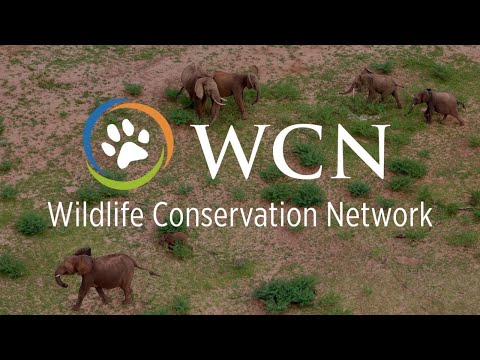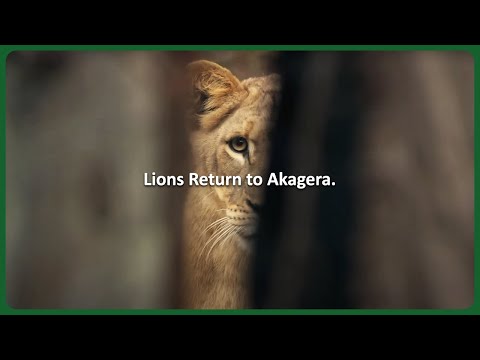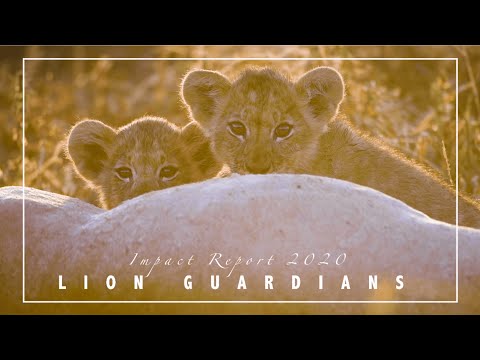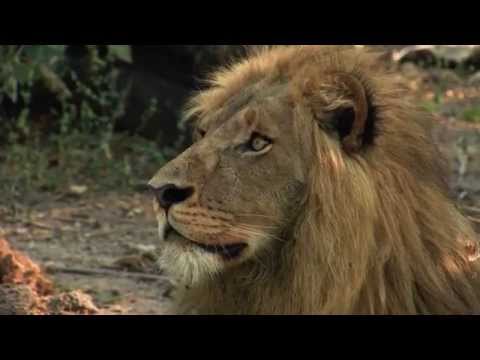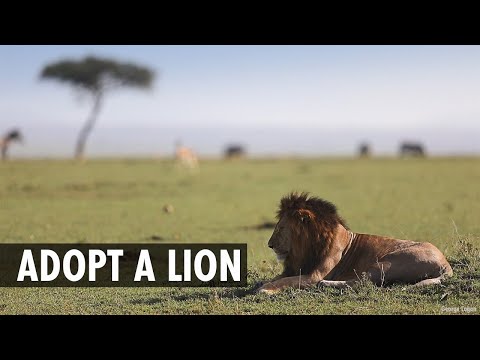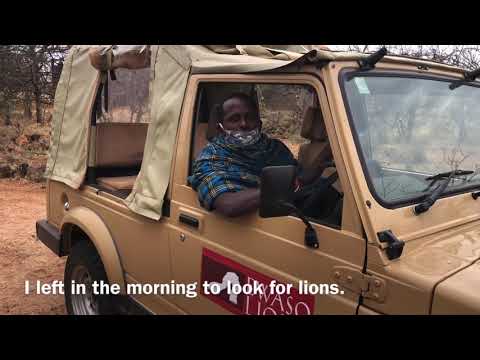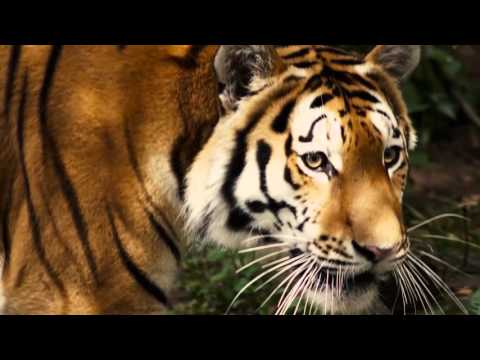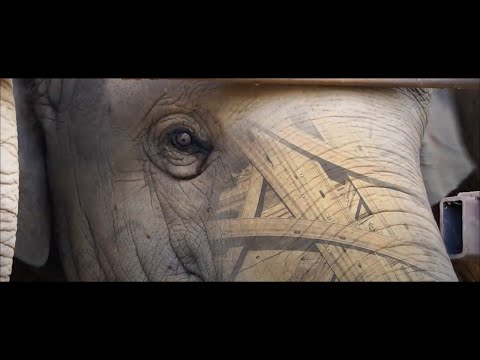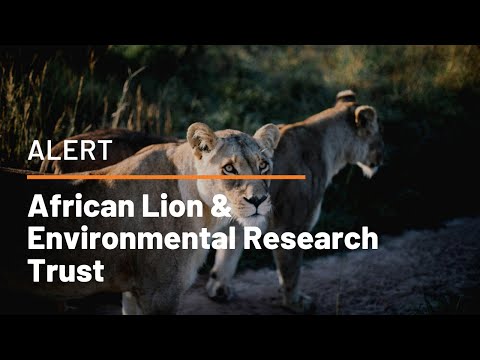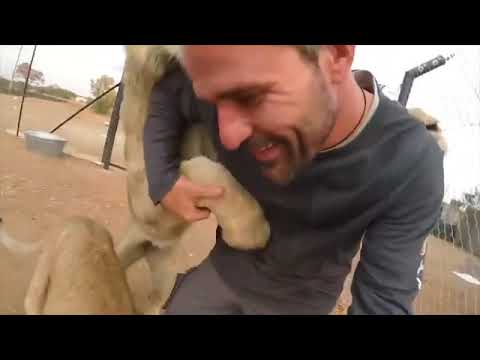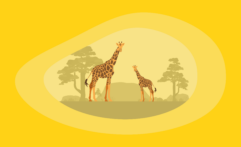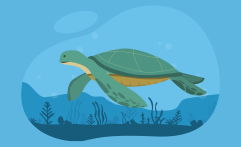10 Best Charities for Protecting Lions (Complete 2024 List)
Impactful Ninja is reader-supported. When you buy through links on our site, we may earn an affiliate commission.
Learn more
Learn more
.
Hey fellow impactful ninja ? You may have noticed that Impactful Ninja is all about providing helpful information to make a positive impact on the world and society. And that we love to link back to where we found all the information for each of our posts. Most of these links are informational-based for you to check out their primary sources with one click. But some of these links are so-called "affiliate links" to products that we recommend. First and foremost, because we believe that they add value to you. For example, when we wrote a post about the environmental impact of long showers, we came across an EPA recommendation to use WaterSense showerheads. So we linked to where you can find them. Or, for many of our posts, we also link to our favorite books on that topic so that you can get a much more holistic overview than one single blog post could provide. And when there is an affiliate program for these products, we sign up for it. For example, as Amazon Associates, we earn from qualifying purchases. First, and most importantly, we still only recommend products that we believe add value for you. When you buy something through one of our affiliate links, we may earn a small commission - but at no additional costs to you. And when you buy something through a link that is not an affiliate link, we won’t receive any commission but we’ll still be happy to have helped you. When we find products that we believe add value to you and the seller has an affiliate program, we sign up for it. When you buy something through one of our affiliate links, we may earn a small commission (at no extra costs to you). And at this point in time, all money is reinvested in sharing the most helpful content with you. This includes all operating costs for running this site and the content creation itself. You may have noticed by the way Impactful Ninja is operated that money is not the driving factor behind it. It is a passion project of mine and I love to share helpful information with you to make a positive impact on the world and society. However, it's a project in that I invest a lot of time and also quite some money. Eventually, my dream is to one day turn this passion project into my full-time job and provide even more helpful information. But that's still a long time to go. Stay impactful,Affiliate Disclosure
Why do we add these product links?
What do these affiliate links mean for you?
What do these affiliate links mean for us?
What does this mean for me personally?
![]()
There are estimated to be between 23,000 and 39,000 mature lions left in the wild. This iconic species was once found across Africa, Europe, and Asia, but due to poaching and habitat loss, lions now occupy only 20% of their historic range. Yet, thanks to the work of conservation charities, populations are now on the rise in several countries including Zambia and South Africa. So we had to ask: What are the best charities for protecting lions?
The best charities for lions in terms of overall impact are the Wildlife Conservation Network and African Parks. Charities such as Lion Guardians and ALERT, do amazing work training and educating members of local communities on the importance of preserving lion populations.
Whether you want to ensure lions are around for future generations to appreciate, or you want to make sure that no lion is subjected to abusive captive environments, there is a charity for you. Keep reading to learn more about what the best charities for protecting lions are all about, how they work, and what your best way would be to make a contribution.
Here’s What All the Best Charities for Protecting Lions Have in Common
The charities on this list were chosen based on their mission, impact and transparency ratings, and achievements.
They operate across Africa and Asia, providing local communities with the tools and knowledge to protect their neighboring lion populations rather than hunting them. They also run numerous campaigns to educate the wider public on the threats facing lions in the wild and captivity.
Many of these charities focus their work on the national parks that provide safe areas for lions to roam, increasing security and removing snares set by poachers. Others focus on raising funds for lion conservation projects in areas where lion populations are in steep decline.
Several of the charities on this list also run their own sanctuaries for lions rescued from canned hunting operations and circuses.
Yet, all of them share the same goal – to remove the threats facing lions so that they can thrive in the wild.
These Are the 10 Best Charities for Protecting Lions in 2024
Below are our favorite charities for protecting lions (you can click on their link to directly jump to their section in this article):
Best Charities For Protecting Lions in 2024
(At the end of this article we’ll also share our six-step approach on how you can select the best charity to support.)
Wildlife Conservation Network: Together We Can Save Endangered Wildlife
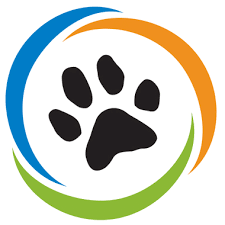
🔎
Their transparency & ratings:
The Wildlife Conservation Trust has a 4-star rating from Charity Navigator. According to their financial report, the charity spent 94% of its expenditure on program grants and services, and 1% on fundraising.
“Protecting endangered wildlife by supporting conservationists who ensure wildlife and people coexist and thrive.”
Wildlife Conservation Network
⚒️
What they do:
Alongside their global conservation partners, the Wildlife Conservation Network supports conservationists by funding conservation projects across Africa, Latin America, Asia, and Eastern Europe. In 2017, the charity launched its Lion Recovery Fund to offer financial support to conservationists dedicated to tackling the threats facing lion populations globally. They do this by removing snares and intercepting poaching efforts, mitigating human-lion conflict in local communities, and protecting lion migratory corridors from being destroyed.
🚀
What they’ve achieved:
To date, the Wildlife Conservation Network has raised over $173 million for 515 conservation projects in 78 countries around the world. Their Lion Recovery Fund has now invested $19 million to support 158 lion conservation projects in 21 countries. They have also invested $1.5 million in grants for new startup conservation organizations, including Conserve which is an ambitious initiative to expand and secure the wild places across Africa. In 2021, the charity removed 64,801 snares from critical lion habitat and confiscated 102,586lbs of illegal bushmeat.
✨
Ways to contribute:
You can donate directly to the Wildlife Conservation Network through their website. Alternatively, you can set up a fundraising event to support the charity or purchase items from their online shop. You can also donate directly to their Lion Recovery Fund.
African Parks: Conserving Africa’s Last Remaining Wildlife Areas
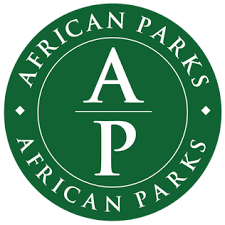
🔎
Their transparency & ratings:
African Parks holds the Gold Seal of Transparency from GuideStar, as well as a 4-star rating from Charity Navigator.
“Effectively managing and protecting national parks for the benefit of people and wildlife.”
African Parks
⚒️
What they do:
African parks management programs combine habitat management, wildlife reintroductions, and monitoring programs to protect Africa’s native wildlife, including lions. They also utilize a combination of technically advanced methods to combat poaching and work to employ individuals from local communities to protect the parks and instill a love of wildlife in local villages.
🚀
What they’ve achieved:
African Parks now has the largest ranger force of any African non-profit organization, patrolling 14.2 million acres across 19 national parks and wildlife areas. In 2020, the charity confiscated 39.7 tonnes of illegal wildlife products and made 2,090 arrests for crimes against wildlife. Within their parks, they now protect 545 lions. Over the years they have reintroduced lions back into the wild in four protected areas, including Liuwa Plane where the first lion cubs were born in the park in 10 years thanks to the initiative.
✨
Ways to contribute:
You can donate directly to African Parks through their website. You can also specifically donate gifts and financial support to their rangers via their rangers fund.
Lion Guardians: Promoting Coexistence
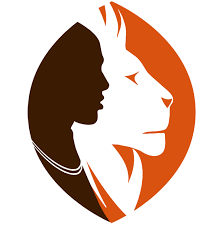
🔎
Their transparency & ratings:
According to their financial report, Lion Guardians spent 56% of their income training new lion guardians in Amboseli, 13% on impact scaling, and 19% on science and research.
“Conserving lions, preserving cultures.”
Lion Guardians
⚒️
What they do:
Lion Guardians are committed to implementing workable, scientifically-driven solutions in areas where lion-human conflict is rife. They train young members of local communities to track lions, patrol lion ranges and intercept hunting operations, and even encourage them to name each lion they identify to form bonds with the animals rather than see them as enemies. The charity also works to reinforce fencing in areas where livestock loss is high, to prevent further conflict between communities and lions.
🚀
What they’ve achieved:
The work of Lion Guardians has directly impacted the seven-fold increase in lions across the Maasai since 2007, by stopping 87% of hunting efforts. In 2019, Lion Guardians successfully found and rescued 29,408 livestock animals which resulted in a $4,656, 650 increase in revenue for local communities. In the same year, they also reinforced 1,040 bomas (fences) and patrolled 172,476km which resulted in the apprehension of 13 lion hunts.
✨
Ways to contribute:
You can donate directly to Lion Guardians through their website. You can also support the charity by sponsoring a guardian or symbolically adopting a lion.
The Big Cats Initiative: Halting The Decline Of Big Cats

🔎
Their transparency & ratings:
The National Geographic Society holds the Platinum Seal of Transparency from GuideStar, as well as a 100% finance and accountability score from Charity Navigator.
“Supporting innovative projects to protect big cat species and help communities thrive.”
The Big Cat Initiative
⚒️
What they do:
The Big Cats Initiative offers grants to conservationists working on projects to protect big cats and their habitats, including Botswana and Kenya where lion-human conflict is prevalent. They also offer classroom and education resources, as well as Big Cats Programs, to educate and inspire the next generation of conservationists. Their Zambian Carnivore Program teaches school-age children in local communities how to track lions in the wild, conduct surveys, and assist conservation efforts for these magnificent cats.
🚀
What they’ve achieved:
To date, The Big Cats Initiative has awarded 150 grants in 28 countries around the globe, reducing threats for 2,800 big cats living in the wild. The charity has also built 2,000 livestock enclosures to reduce human-wildlife conflict and has removed 13,000 deadly snares from big cat habitats. The Big Cats Initiative was integral to the launch of an innovative new lion alert system in Botswana, fitting satellite tracking collars to wild lions which then relay a signal to local communities when a lion is close. This allows villagers to take steps to protect their livestock without seeking revenge on fragile lion populations. The initiative has seen a 50% reduction in livestock losses and has saved the lives of countless lions.
✨
Ways to contribute:
You can donate directly to The Big Cat Initiative through their website, or attend any one of their educational and fundraising events, where 100% of the proceeds go towards the charity’s conservation work.
Born Free Foundation: Animals Thriving In The Wild
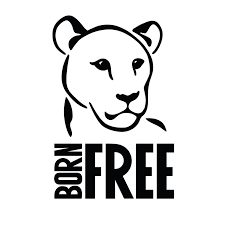
🔎
Their transparency & ratings:
The American branch of the Born Free Foundation holds the Gold Seal of Transparency from GuideStar, as well as a 3-star rating from Charity Navigator.
“Ensuring all wild animals are treated with compassion and respect and are able to live their lives according to their needs.”
Born Free Foundation
⚒️
What they do:
Born Free Foundation works with local communities around the globe to mitigate human-animal conflict. In addition, they manage 12 sanctuaries for rescued wild animals that were previously living in unsuitable and abusive captive environments. These include the Shamwari Big Cat Sanctuary in East Cape, Africa, which is currently home to 12 lions. They also run regular campaigns to end the use of lions and other wild animals in the entertainment industry, as well as trophy hunting, canned lion hunting, and the wildlife trade.
🚀
What they’ve achieved:
Today, Born Free Foundation runs conservation initiatives, education outreach programs, and animal sanctuaries in 20 countries around the world. In 2019, they built 9 predator-proof enclosures to protect 2,637 livestock animals across Amboseli National Park in Kenya. In total, Born Free has erected 275 perimeters which have resulted in 0 lion attacks and allowed the local lion population to increase with no retaliation from local communities. As a result of their predator-proof bomas program (in collaboration with the African Wildlife Foundation) the charity has protected over 2,500 people and 32,500 livestock from lion attacks, which has reduced human-lion contact dramatically.
✨
Ways to contribute:
You can donate directly to the Born Free Foundation through their website. You can also support the charity by adopting an animal or by purchasing items from their online shop.
Ewaso Lions: Promoting Human-Wildlife Coexistence
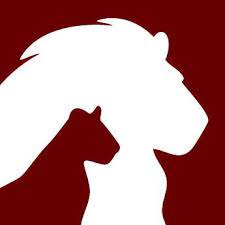
🔎
Their transparency & ratings:
According to their financial report, Ewaso Lions spent 93% of their income on charitable programs and 4% on fundraising.
“Dedicated to conserving lions and other large carnivores by promoting coexistence between people and wildlife.”
Ewaso Lions
⚒️
What they do:
Ewaso Lions promotes coexistence between local communities and vulnerable lion populations in Kenya by training local men and women to be wildlife warriors. They do this by educating them on effective conservation measures which they then use to raise awareness in their local villages. Furthermore, through their Biodiversity and Infrastructure Program, the charity safeguards zebra and lion wildlife corridors to prevent human-wildlife conflict and they also provide local youth with education and internships in lion conservation through their Jeremy Lucas Education Fund. In addition, they conduct daily patrols to monitor lion numbers and wild prey abundance to measure the health of the ecosystem.
🚀
What they’ve achieved:
Today, Ewaso Lions operates across 4,530km2, covering 11 community conservancies in Kenya. For example, in 2021, they resolved 47 incidents of human-lion conflict and engaged 531 local individuals in conservation education conferences and workshops. In the same year, they recruited 7 new wildlife warriors and witnessed the milestone birth of 9 wild lion cubs. And in 2020, the charity successfully rescued 256 livestock from predation which saved local communities more than $25,000 in income.
✨
Ways to contribute:
You can donate directly to Ewaso Lions through their website. You can also keep up to date with the work of the charity by signing up to their mailing list or by following them on Facebook or Twitter.
Panthera: Protecting All Big Cats

🔎
Their transparency & ratings:
Based on their financial report, Panthera spent 80% of their income on conservation projects and 20% on company support services and functions. The charity also has a 3-star rating from Charity Navigator.
“Ensure a future for wild cats and the vast landscapes on which they depend.”
Panthera
⚒️
What they do:
Panthera partners with like-minded organizations, scientific institutions, and local communities to implement protective strategies for wild cat species in 39 countries, through their various conservation projects. Their main focus is on the seven species of big cats; pumas, lions, tigers, leopards, jaguars, snow leopards, and cheetahs. Their Leonardo Project is the world’s first conservation strategy that encompasses the lions’ entire range by conducting poaching patrols and assisting in the build and maintenance of lion corridors to ensure their safe passage between Africa’s key national parks.
🚀
What they’ve achieved:
To date, Panthera has identified 14 key lion landscapes across Africa and has led lion surveys and conservation programs in 18 countries. In 2020, the charity actively monitored and protected 102 lions in the Greater Kafue Ecosystem in Zambia, covering a distance of 8,137km. This resulted in only two lion deaths to poachers in the entire year. Since 2016, Panthera has worked alongside the Senegalese Direction des Parcs Nationaux, to build law enforcement infrastructure and support anti-poaching patrols in the Niokolo-Koba National Park, which is home to one of the last remaining populations of lions in West Africa. Through this project, they have cleared the area of poachers and allowed the lion population to thrive.
✨
Ways to contribute:
You can donate directly to Panthera through their website or you can set up an online fundraiser to raise money for the charity.
African Wildlife Foundation: Protecting Africa’s Most Threatened Species
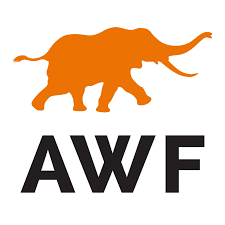
🔎
Their transparency & ratings:
The African Wildlife Foundation has a 3-star rating from Charity Navigator. According to their financial report, the charity spent 87% of its income on conservation programs, 10% on fundraising, and 3% on administration.
“Working to ensure wildlife and wildlands thrive in modern Africa.”
African Wildlife Foundation
⚒️
What they do:
The African Wildlife Foundation trains law enforcement officers and wildlife rangers to combat wildlife crime and poaching efforts. They also use Canines for Conservation dog-and-handler teams to intercept the trade of lion bones and other wildlife products through Africa’s airports. In addition, they invest heavily in educational outreach programs for primary school children in local communities by offering a comprehensive education curriculum that includes conservation values and strategies.
🚀
What they’ve achieved:
Out of the 9 carnivore populations supported and protected by the African Wildlife Foundation (including the Africa Lion), 7 are now either stable or on the increase. As of 2020, the charity protects 640,000 acres of land which is home to African lions, elephants, and giraffes. Alongside internationally recognized artist John Banovich, the African Wildlife Foundation launched the Lion P.R.I.D.E. Initiative which is dedicated to conserving lions through scientific research and conservation efforts.
✨
Ways to contribute:
You can donate directly to the African Wildlife Foundation through their website, or you can support the charity by setting up your own fundraiser.
African Lion & Environmental Research Trust (ALERT): Conserve the Ecosystem for the African Lion
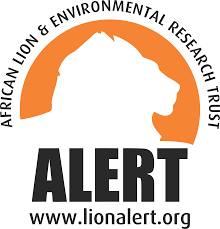
🔎
Their transparency & ratings:
According to their financial report, Lion Alert spent 62% of their income on research and education programs and 30% on other charitable activities.
“To ensure viable populations of African lions are maintained as an integral part of functional ecosystems”
African Lion & Environmental Research Trust
⚒️
What they do:
The African Lion & Environmental Research Trust follows a multidisciplinary approach to conservation; working on the ground to protect lions, their prey items, and the habitats they live in. They also engage with local communities through their classroom support initiatives at their protected Antelope park, to inspire the next generation of conservationists. Their Lion Release Program involves hand-raising captive lion cubs to prepare them for release into the fenced and managed wild park. They also conduct regular wildlife studies to track populations of lions, elephants, giraffes, and hyenas.
🚀
What they’ve achieved:
To date, the African Lion & Environmental Trust has rehabilitated and released 289 lions into their Antelope game reserve in Zimbabwe and Livingstone in Zambia. They have also been integral to the launch and management of an innovative African Lion Database which has been set up to accurately consolidate reliable data on lion populations and distribution patterns of lions across Africa. With the database, the African Lion & Environmental Research Trust aims to provide a platform to help assess the impact of conservation efforts and measure the threats facing lion populations on the continent.
✨
Ways to contribute:
You can donate directly to any one of The African Lion & Environmental Trusts’ projects through their website. You can also join one of their volunteer programs or set up a fundraising event to support the charity.
Kevin Richardson Foundation: Preserving Habitat, Protecting Lions
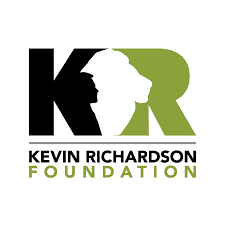
🔎
Their transparency & ratings:
According to their financial report, the Kevin Richardson Foundation spent 58% of its income on habitat health, 25% on anti-poaching efforts, and 11% on protecting wild lions.
“Committed to reversing the state of Africa’s declining lion population to create safe, natural spaces where lions and other native species can flourish.”
Kevin Richardson Foundation
⚒️
What they do:
The Kevin Richardson Foundation is working to preserve wild lions through 4 key areas; purchasing land to expand lion habitats in Africa, educating local communities, spreading awareness by collaborating with other like-minded organizations, and by maintaining their sanctuary for captive lions, leopards, and hyenas. The charity also supports research performed by the University of Pretoria’s Carnivore Working Group who work on methods to effectively care for captive big cats.
🚀
What they’ve achieved:
When the Kevin Richardson Foundation was launched, they were able to raise $134,545 to purchase 1,180 hectares of land for wild lions to roam. The lions at the sanctuary were also subjects in a pharmaceutical trial using oxytocin to reduce trauma and aggression in translocated big cats and to assist in the veterinary treatments of big cats. The extraordinary trust Richard has with lions has opened up countless close contact study opportunities that were previously impossible.
✨
Ways to contribute:
You can donate directly to the Kevin Richardson Foundation through their website, or you can support the charity by setting up a fundraising event. Alternatively, you can participate in their #onecupforacause campaign.
How Can You Select the Best Charities to Support?
The charities on the list are, we deem, the best charities for protecting lions. However, you may have a particular charity you want to support. Let’s look at what you can do to ensure your contribution has the most significant impact.
- Check out the charity website. Charities that are worthy of your donations are transparent in their mission and their figures. Familiarise yourself with their history, mission, and values. Their website usually is the best place to start.
- Identify the charity’s mission. Without a goal, the charity is likely to fail. If the charity’s mission isn’t clear, it’s probably worth looking for a charity that does have a clear mission.
- Check if the charity has measurable goals. An effective charity has clear goals. You want to know your donation will help the charity reach its goals. But if it doesn’t have targets, it’s likely to fail or squander your gift. The charity should be able to account for its spending and supply evidence of the work they do.
- Assess the successes or goals the charity has achieved. You wouldn’t invest in a business if it kept missing its targets. In the same way, charities are like this too. If no one is assessing the progress a charity makes in reaching its targets, the chances are not making positive change.
- Check the charity’s financials and stats. Trustworthy organizations will publish financial statements and reports each year. Some might be exempt from having to do so, but they should be able to provide them to public members who are interested in donating.
- Locate sources who work with or benefit from the charity. Word of mouth and first-hand experience of a charity’s work lets you know the charity’s quality. If you’re able to do so, check out the charity for yourself or speak to someone familiar with it. This way, your donation will go to the right place.
How Can You Best Support These Charities?
After you’ve made your decision, it’s time for you to decide on how you’d like to help the charities you’ve chosen. Check how you can help – each charity runs specific programs that have unique aims. Find out what the aim of such programs is and whether they are right for you.
Here are a few ways you can help your chosen charity:
- Donate money. You can find donation pages on the website of most charities. Your donation can be a one-time payment, or you can set it to be deducted regularly at different intervals. You can mostly pay via credit card, but some charities also take PayPal or Bitcoin payments.
- Buy their official merchandise. The charities can also raise money by selling merchandise. So, you can support them by buying the mugs, shirts, caps, pens, pencils, and any other such items they may be selling. Ideally, you should buy as much as you can to share and spread the word about the charity’s activities.
- Engage in volunteer work. As you’ve seen from our descriptions above, some charities engage in a lot of local and grassroots programs. You can help by taking on and organizing the program in your local area.
- Help their fundraising efforts. You can spread the word about the charity in your workplace, school, church, etc., and hold creative fundraising drives on social media or offline within your small circles.
- Share their stories. Most charities have compelling stories that you can share with your audience to attract more people to the cause.
Final Thoughts
Now it is just up to you to select the charity that resonates most with you. And whichever charity you end up choosing and contributing to, we are sure that they will immensely appreciate your support. Hopefully, the information within this article has made this selection process a bit easier for you to support charities dedicated to protecting lions – based on the causes that matter most to you.
Stay impactful,

PS: Finally, I want to leave you with a thought-provoking TED talk from Dan Pallotta, a leading philanthropic activist and fundraiser, about what is wrong with the way we think about charities – and what we can do about it:
Sources
- IUCN Redlist: Lions
- Lion Guardians: Homepage
- Lion Guardians: 2020 Impact report
- Lion Guardians: Lion Guardians Amboseli
- Lion Guardians: Conflict Mitigation
- Lion Guardians: Donate
- Wildlife Conservation Network: Homepage
- Charity Navigator: Wildlife Conservation Network
- Wildlife Conservation Network: 2020 Annual report
- Wildlife Conservation Network: Wildlife Funds
- Lion Recovery Fund: Homepage
- Wildlife Conservation Network: Impact
- Wildlife Conservation Network: Lion Recovery Fund Progress Report Aug 2021
- Wildlife Conservation Network: Lion Recovery Fund Progress Report Feb 2021
- Conserve Global: Homepage
- Wildlife Conservation Network: Donate
- Wildlife Conservation Network: Wildlife Champions
- Wildlife Conservation Network: Shop For Wildlife
- Wildlife Conservation Network: Lion Recovery Fund
- African Parks: Homepage
- African Parks: Our Story
- GuideStar: African Parks
- Charity Navigator: African Parks
- African Parks: Save the lions
- African Parks: World Ranger Day
- African Parks: Park Protection
- African Parks: Annual Report 2020
- African Parks: Our Track Record
- African Parks: Lion cubs born in Liuwa National Park
- African Parks: Donate
- African Parks: FAQs
- Born Free Foundation: Homepage
- GuideStar: Born Free Foundation
- Charity Navigator: Born Free Foundation
- Born Free Foundation:Rescue & Care
- Born Free Foundation: Shamwari Big Cat Sanctuary
- Born Free Foundation: Animals in entertainment
- Born Free Foundation: Trophy hunting
- Born Free Foundation: Lion Farming
- Born Free Foundation: Wildlife Trade
- Born Free Foundation: Where we work
- Born Free Foundation: Conservation Report 2018-19
- Born Free Foundation: Lion conservation
- Born Free Foundation: Donate
- Born Free Foundation: Adopt an animal
- Born Free Foundation: Born Free Shop
- Ewaso Lions: Home page
- Ewaso Lions: Warrior Watch
- Ewaso Lions: Biodiversity and Infrastructure Program
- Ewaso Lions: Education
- Ewaso Lions: Monitoring Wildlife
- Ewaso Lions: 2020 Annual Report
- Ewaso Lions: Donate
- Ewaso Lions: Newsletters
- Facebook: Ewaso Lions
- Twitter: Ewaso Lions
- Panthera: Homepage
- Panthera: Our Mission
- Panthera: 2020 Annual Report
- Charity Navigator: Panthera
- Panthera: Initiatives
- Panthera: Project Leonardo
- Panthera: Donate
- Panthera: Fundraising
- The Big Cats Initiative: Homepage
- National Geographic: Homepage
- GuideStar: The Big Cats Initiative
- Charity Navigator: The Big Cats Initiative
- The Big Cats Initiative: Educational Resources
- National Geographic: NATGEOTV
- The Big Cats Initiative: New Lion Alert System
- National Geographic: Donate
- National Geographic: Events
- African Lion & Environmental Research Trust: Homepage
- Gov.UK Register of Charities: African Lion & Environmental Research Trust
- African Lion & Environmental Research Trust: About ALERT
- African Lion & Environmental Research Trust: Antelope Park
- African Lion & Environmental Research Trust: Lion Release Program
- African Lion & Environmental Research Trust: Wildlife Trust
- African Lion & Environmental Research Trust: Lion Research
- African Lion & Environmental Research Trust: Lions in the release program
- African Lion & Environmental Research Trust: African Lion Database 2020
- African Lion & Environmental Research Trust: Donate
- African Lion & Environmental Research Trust: Volunteer
- African Wildlife Foundation: Homepage
- Charity Navigator: African Wildlife Foundation
- African Wildlife Foundation: Brochure 2018
- African Wildlife Foundation: Canines For Conservation
- African Wildlife Foundation: Lion bone trade
- African Wildlife Foundation: Classroom Africa
- African Wildlife Foundation: Species Conservation Factsheet
- African Wildlife Foundation: 2020 Conservation Progress Report
- African Wildlife Foundation: Lion P.R.I.D.E Initiative
- African Wildlife Foundation: Donate
- African Wildlife Foundation: Fundraise
- Kevin Richardson Foundation: Homepage
- Kevin Richardson Foundation: Annual report 2018-2020
- Kevin Richardson Foundation: Our mission
- Kevin Richardson Foundation: Sanctuary
- Kevin Richardson Foundation: Donate
- Kevin Richardson Foundation: Fundraise For Lions
- Kevin Richardson Foundation: Onecupforacause
